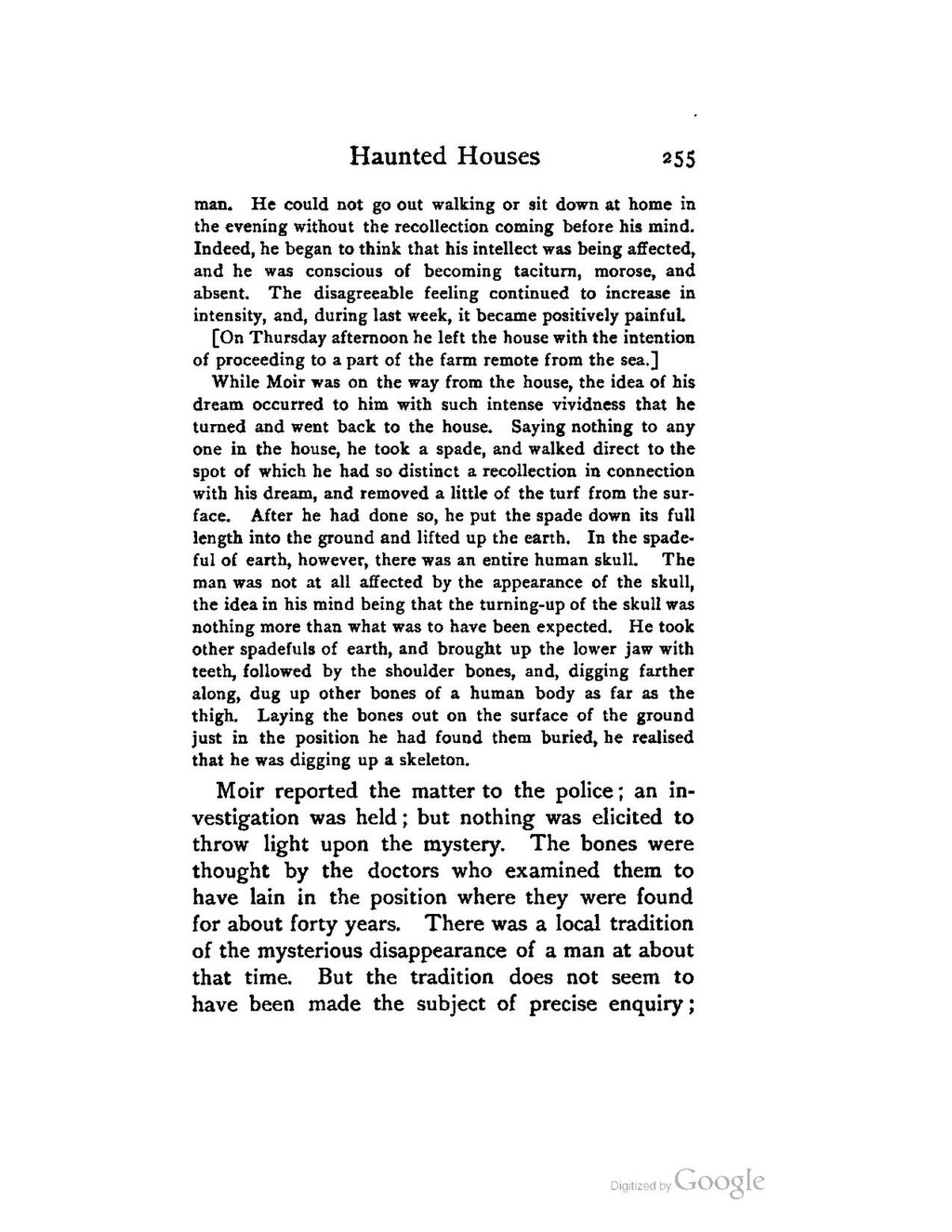man. He could not go out walking or sit down at home in the evening without the recollection coming before his mind. Indeed, he began to think that his intellect was being affected, and he was conscious of becoming tacitum, morose, and absent. The disagreeable feeling continued to increase in intensity, and, during last week, it became positively painful.
[On Thursday afternoon he left the house with the intention of proceeding to a part of the farm remote from the sea.]
While Moir was on the way from the house, the idea of his dream occurred to him with such intense vividness that he turned and went back to the house. Saying nothing to any one in the house, he took a spade, and walked direct to the spot of which he had so distinct a recollection in connection with his dream, and removed a little of the turf from the surface. After he had done so, he put the spade down its full length into the ground and lifted up the earth. In the spadeful of earth, however, there was an entire human skull. The man was not at all affected by the appearance of the skull, the idea in his mind being that the turning-up of the skull was nothing more than what was to have been expected. He took other spadefuls of earth, and brought up the lower jaw with teeth, followed by the shoulder bones, and, digging farther along, dug up other bones of a human body as far as the thigh. Laying the bones out on the surface of the ground just in the position he had found them buried, he realised that he was digging up a skeleton.
Moir reported the matter to the police; an investigation was held; but nothing was elicited to throw light upon the mystery. The bones were thought by the doctors who examined them to have lain in the position where they were found for about forty years. There was a local tradition of the mysterious disappearance of a man at about that time. But the tradition does not seem to have been made the subject of precise enquiry;
